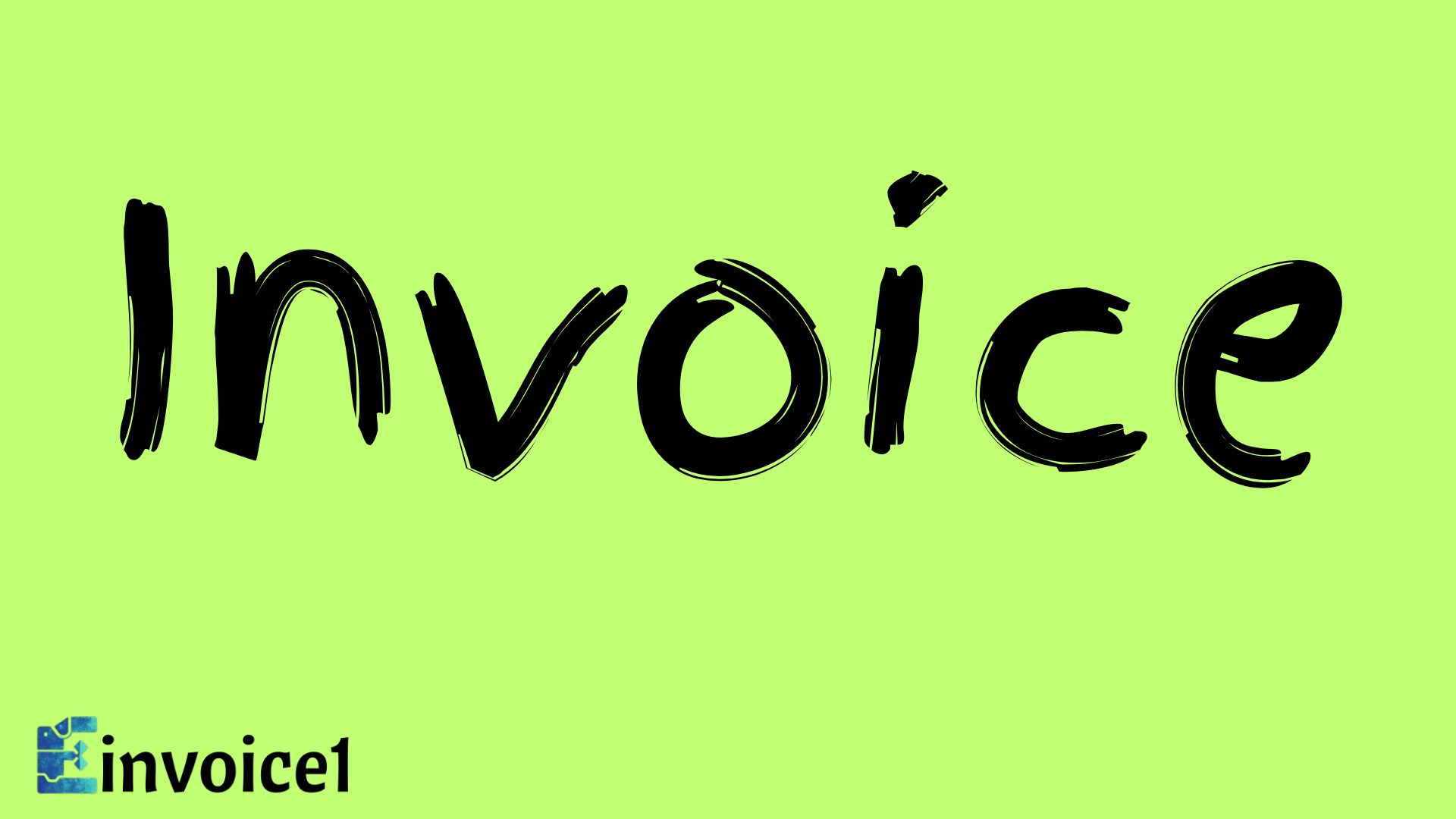Invoices are one of the most significant documents in business transactions and yet most people fail to appreciate the true value of invoice. It can have a tremendous difference on the flow of your business no matter how small a business you run, a startup or a large company, issuing invoices properly can yield a significant difference in the smooth functioning of your business. Invoices are not merely bills; they are legal, financial, and organizational documents, and by virtue of these, they enable companies to stay transparent, monitor payments, and establish credibility with your customers. It is imperative to know what an invoice is, its functionality, and its importance to all entrepreneurs and financial experts.
Invoice is simply a formal request of payment that a seller addresses to a buyer after the delivery of goods or services. It contains information which includes descriptions of items on sale, quantity, unit price, taxes payable on them, discounts and amount payable. It also normally includes details of payment terms, which could include the date of payment and the method of payment that is preferred. In the business sense, invoices are a documentation of the business transaction and a means to account, file tax returns, and manage finances. To the client, getting an invoice helps him/her be sure of what they are paying and when they are expected to pay.
Invvoices are more than a mere transfer of money. They play a central role in keeping cash flow going which is the bloodline of all businesses. In the absence of effective invoicing, companies might fail to get paid on time, which will cause financial instability. Professional relationships are also strengthened by an invoice that is prepared accurately. Clients like companies that give transparent, well-organized, and understandable documents since it demonstrates reliability and professionalism. In its turn, it is capable of enhancing customer satisfaction and raising the possibility of repeat business.
Invoices are also vital in the protection of the law. An invoice is a piece of evidence of the transaction in case of disputes that the two partieshave agreed on the terms. As an illustration, when a client denies payments, the invoice may be presented in a court of law as a way of establishing that the service/product was provided. On the same note, commercial enterprises can evade confusion when the invoices spell out clearly the price and terms and conditions agreed upon by both parties.
There are various forms of invoices, which are applied depending on the case. The most popular and standard is the invoice that is used in general billing. Proforma invoices are issued prior to the delivery of goods or services being done in order to estimate costs. Recurring invoices ease the workload of businesses that provide subscription-based or continual services because their payments are collected at a regular frequency without necessarily having to prepare a new invoice every time. Credit invoices are sent when the business requires to issue a refund or a discount, whereas debit invoices are forwarded when the customer owes some extra amount of money. International trade tends to use commercial invoices to declare the worth of goods to customs. All types of invoices perform their own specific functions of smooth transactions.
The use of electronic invoices or e-invoices by modern business is on the rise. E-invoices are developed, transmitted, and saved online as opposed to ordinary paper invoices. This method has numerous benefits such as prompt delivery, less paperwork and precision. The accounting software has the capability of generating e-invoices automatically and thereby reducing errors, as well saving invaluable time to the business owners. They also enable easier integration with online payment system and hence clients can easily pay through them. E-invoicing is also a requirement by law in most countries in order to comply with taxation, thus reiterating its value in the contemporary business environment.
The invoice must be well structured in a professional manner to make it understandable. The most important items are the name of the business, contact details, the details of the client, an invoice number, the date of issue, description of the goods or services and pricing details, taxes to be paid and the amount due. Terms and payment instructions should also be spelt out. It is also common in many enterprises that the brand logo and the thank-you note are added at the bottom of the invoice in order to make it more personal and professional. An invoice that has been properly designed is not only attractive, but it will also enable the clients to process it and pay in time.
Another important aspect that directly influences cash flow is on-time invoicing. Companies are expected to create invoices the moment a product has been delivered or a service has been done. Failure to send invoices on time usually results into delays in payment. It is important to specify payment terms, e.g., net 15 or net 30, so that they are sure when the payment should be made. It is also important to follow up on outstanding bills. Automated reminders have proven useful to many businesses in ensuring their invoicing software minimizes late payment risks. Such a proactive strategy guarantees smoother financial management and decreases the chances of conflict.
The way invoices are handled has changed by technology. The invoicing software in the cloud enables companies to create, transmit, and follow invoices everywhere, which makes the procedure very efficient. These tools also offer comprehensive analytics, which help business owners to follow up on which clients make payments and which accounts are late. This understanding may be used in future decision-making, including the provision of early payment discounts or a change in credit conditions. Also, by combining invoicing systems with accounting software, financial records can be kept accurate and up to date and this makes the preparation of financial records and audits easier.
In terms of financial management, invoices are essential to bookkeeping. They act as the records of revenue which are official because they assist the business in tracking their areas of revenue. Invoices are used by accountants to balance payments, make financial statements and taxes. In the process of audits, invoices offer the requisite documentation to validate transactions. Lack of invoicing can mean that the business will have difficulties in demonstrating its income, which can result in compliance and fines. Thus, it is not only convenient to have a systematic system of invoicing but it is also imperative in legal and financial security.
Invoicing is especially significant to small businesses and freelancers who usually rely on the speed of payment to keep their businesses afloat. When compared to large corporations, smaller ones typically lack the large financial reserves, which means that the insufficiality of payments may severely affect cash flow. The provision of clear and professional invoices makes the freelancer and small business owners look credible ,and these attributes enable the freelancer and the small business owner to establish long term relationships with their clients. Besides, the implementation of invoicing software enables even small businesses to allocate their finances effectively and compete with bigger companies.
Invoices are also very important in international trade on a global scale. In cases of imports or exports of goods, the commercial invoices are made to declare the value of the shipment to the authorities at the customs. These invoices contain descriptive details of the origin of goods, shipment details and the harmonized system codes to classify the goods. Properly drawn commercial invoices can avoid any delays at the ports of entry and proper calculation of duties and taxes. With companies involved in cross-border trade, understanding how to prepare compliant invoices is essential to the operations being run globally.
Along with the advantages, there are situations when businesses have difficulties related to invoicing. Other typical challenges are delayed payment, wrong invoice specifications or disagreement over bill. In order to reduce such issues, businesses need to have proper agreements with the clients prior to commencing work. A lot of disputes can be avoided by transparency in pricing, scope of service and terms of payment. Professional invoicing software also minimizes the risk of mistakes since it automatically adds up totals and imposes taxes on them, and it generates original invoice numbers. Invoicing consistency and professionalism can create and sustain stronger business relationships, as well as maintain financial stability.
In the future, the development of invoicing will follow the progress in digital finance. As the number of blockchains and smart contracts grows, automatic invoicing and payment verification are bound to become more widespread. Artificial intelligence may also facilitate the process by forecasting payment behaviors, sending notifications, and even detecting fraud. These innovations will reduce the difficulty in invoicing as well as increase its stability and clarity. Companies adopting contemporary invoicing systems will be ahead in terms of effective financial management.
To sum it up, invoices are not just documents that ask for payment. They form the backbone of financial transactions, accountability, transparency, and trust between companies and their customers. From traditional paper-based invoices to sophisticated e-invoicing applications, the intent is the same, and that is to create good communication and ensure that companies receive payment for their efforts. Knowing the significance of invoices and adopting effective invoicing habits, organizations of any size are guaranteed to have a healthy cash flow, stay on the right side of the law, and establish better working relationships. With the ongoing technological growth, the future of invoicing is much easier, more accurate, and reliable and, therefore, invoicing is an indispensable part of business success in the longer term.




